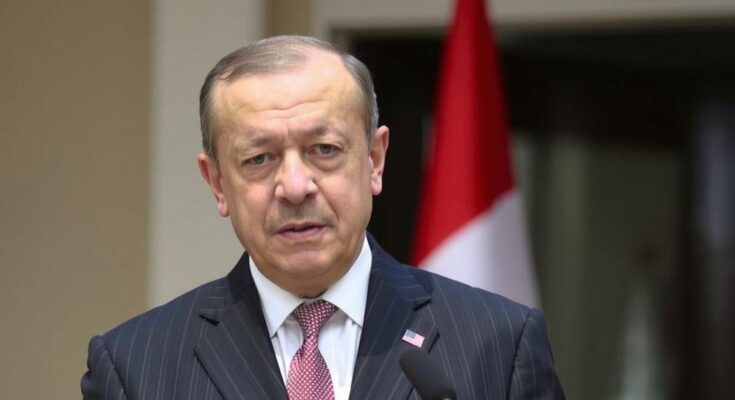President Erdogan of Turkey is set to meet Egyptian President el-Sisi in Cairo on December 19, focusing on Syria’s transition following Assad’s ouster. The meeting highlights growing Turkish influence in the region and Egypt’s concerns over HTS-led governance in Syria. Both nations are seeking cooperation on stabilizing Syria and managing reconstruction efforts in the aftermath of recent conflict. This engagement marks a significant shift in historically adversarial relations between Turkey and Egypt, fostering potential diplomatic collaboration moving forward.
On December 19, 2023, President Recep Tayyip Erdogan of Turkey is scheduled to meet with Egyptian President Abdel Fattah el-Sisi in Cairo, with discussions primarily focused on the recent developments in Syria. This meeting follows a significant shift in the regional power dynamics following the toppling of Bashar al-Assad’s government by Hay’at Tahrir al-Sham (HTS), an event that has prompted Egypt to seek deeper collaboration with Turkey amidst concerns regarding the new Syrian governance structure.
The Egyptian government initially invited President Erdogan prior to the overthrow of the Assad regime. However, since then, Egyptian officials have emphasized the importance of Erdogan’s visit to facilitate direct dialogue concerning the situation in Syria. Erdogan’s growing influence in the region can be attributed to his historical support for Syrian rebels, a relationship that has been further reinforced by recent interactions between Turkish intelligence and Syrian leadership.
The chief of Turkey’s National Intelligence Organization (MIT), Ibrahim Kalin, was seen recently in Damascus, underscoring Turkey’s vested interest and influence in the Syrian realm. Despite HTS’s designation as a terror group by the United States, Turkey maintains a strategic connection with Syrian rebel factions that have emerged since the onset of the Syrian conflict in 2011.
The collapse of Assad’s leadership has raised alarm among several Arab nations, including Egypt, Jordan, and Saudi Arabia, regarding the potential rise of militant factions within Syria. In response, HTS has reportedly engaged with representatives from these countries to demonstrate their commitment to forming an inclusive governing body devoid of terrorist affiliations.
Furthermore, the upcoming Cairo summit, which will also see the participation of Iranian President Masoud Pezeshkian, is viewed as a potential opportunity for Egypt to mediate discussions between Erdogan and Iran. Previous tensions between Turkey and Egypt, particularly regarding their divergent positions during the Egyptian Revolution, appear to have eased amidst these current regional dynamics, with both nations poised to address reconstruction efforts in Syria and stability in the broader region.
Turkey is keen on fostering an environment for the return of approximately three million Syrian refugees while playing a pivotal role in Syria’s reconstruction, estimated to cost around $400 billion. President Sisi is expected to underscore this point during discussions with President Erdogan, emphasizing Egypt’s historical role in post-conflict reconstruction across the region.
In summary, the December 19 meeting stands as a crucial moment, potentially redefining Turkish-Egyptian relations against the backdrop of Syrian turmoil and shifting regional allegiances.
The context of this meeting between President Erdogan and President Sisi unfolds within a complex tapestry of Middle Eastern geopolitics, influenced significantly by the Syrian conflict. Since the Syrian civil war erupted in 2011, Turkey has taken a supportive stance towards opposition groups, leveraging its influence to shape outcomes in Syria. Following the recent overthrow of Bashar al-Assad’s government by HTS, concerns regarding extremist factions and regional stability have surged. Countries such as Egypt are now seeking to engage with Erdogan to navigate this shifting landscape and address potential threats posed by militant groups in Syria. Both Turkey and Egypt have historical enmities rooted in their respective political alignments during the Arab Spring, yet circumstances compel a re-evaluation of their relationships. The nature of Erdogan’s influence in Syria, particularly concerning the transition government formed by rebels, underscores the necessity for dialogue across former adversarial lines, especially as regional players scout for answers to burgeoning instability.
In conclusion, President Erdogan’s forthcoming visit to Cairo symbolizes a critical juncture in Turkish-Egyptian relations, framed by the instability in Syria. The discussions are expected to address ongoing concerns regarding governance in Syria and the emergence of extremist factions. Both leaders face the imperative to navigate a rapidly changing geopolitical landscape while seeking collaborative avenues for regional stability and reconstruction efforts. This meeting may serve as a foundation for closer ties, offering a pathway to reshape their interactions in light of recent developments in the region.
Original Source: www.middleeasteye.net




